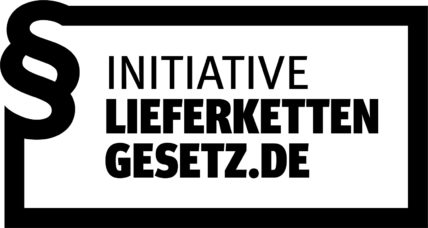

The alliance demands mandatory human rights and environmental due diligence because, as numerous cases clearly show, companies are not willing to meet their human rights obligations voluntarily.
The Initiative Lieferkettengesetz advocates a world in which businesses respect human rights and environmental standards across the entire supply chain – from raw material extraction to the final customer – both at domestic and international levels. The website www.lieferkettengesetz.de/Organisationen includes a list of the founding and supporting organizations.
German companies acquire resources as well as intermediate, final and processed products from around the world. They run production and distribution facilities internationally and export their products to all regions of the globe. They invest in major projects worldwide and offer their services on global markets. Yet in many industries, human rights abuses are no exception. When it comes to the production of our clothes, for example, catastrophic textile factory fires and collapses are merely the tip of the iceberg. Exploitative working conditions are a part of everyday life. We destroy the natural resources people rely on for their very existence to extract the raw materials we need to make our cars or electrical appliances. To feed their substantial demand for water, the extractive industries dry out wells while the toxic waste they leave behind pollutes the environment. And on cacao and palm oil plantations, children are made to work under extreme conditions.
Many of these problems have been known for some time, and companies have repeatedly declared their intention to resolve them “voluntarily”. In most cases, however, such voluntary approaches lead to nothing more than cosmetic changes: Human rights abuses are integral to a system in which companies, under considerable competitive and price pressures, cannot be held accountable for the impacts of their overseas activities.
For companies to truly respect human rights principles in their global business activities, a legal framework will be required – one that also provides opportunities for those affected to hold companies accountable for abuses, in which they were involved. European countries such as the Netherlands, France and the UK have already adopted laws to encourage the respect of human rights in overseas business operations. Following long and heated debates, the German government has finally adopted a supply chain law in June 2021. It has been in force for companies with more than 3.000 employees since 2023.
Protecting human rights and fostering global sustainable development – the European Union has committed to working toward these goals, and in the face of the current crises, they have now become more important than ever.
Yet, all too often, European companies have stood for the opposite. By engaging in unscrupulous business practices, they contribute significantly to dangerous working conditions, exploitative child labor and the destruction of rainforests throughout the world. All too often, people and the environment must pay the price for the profits of European corporations.
The time has come for Europe to take responsibility and pass an effective supply chain law for the EU: this is how Europe can make a real difference for our planet and its people.
The initiative has already successfully campaigned for a supply chain law in Germany. However, due to resistance from the business lobby, this law still has gaps and weaknesses, which is why we need an even stronger EU supply chain law that creates mandatory human rights and environmental standards for companies across Europe.
Dear Europe, yes EU can!
If you want more information, visit the project website.

If you have any questions, feel free to ask me:
Christian Wimberger
Contact person for public procurement and raw materials
wimberger@ci-romero.de
Phone: +49 (0) 251 674413 21